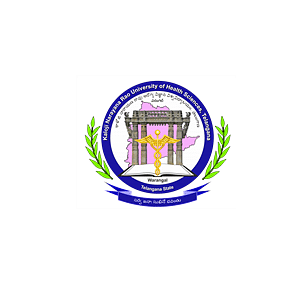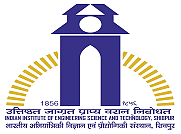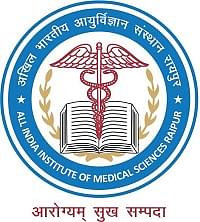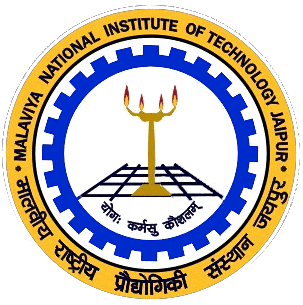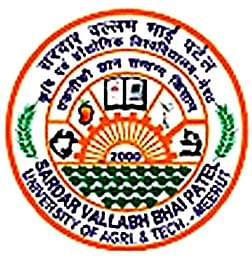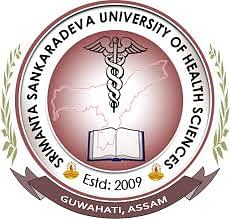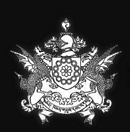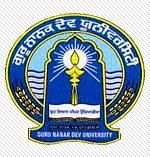Introduction about Ph. D in Comm, Languages and
Info
Ph.D. in Communication, Languages, and Information from top college is an advanced academic program
designed to equip scholars with a deep understanding of the interplay between
communication processes, linguistic structures, and information systems. This
interdisciplinary field integrates theories and methodologies from
communication studies, linguistics, and information science to explore how
language and information are used, transmitted, and interpreted across various
media and contexts.
Key Components:
Communication
Studies:
Focuses on how
messages are crafted, transmitted, and received in different mediums and
settings.
Examines
interpersonal, organizational, and mass communication.
Investigates the
role of communication in shaping public opinion, culture, and social norms.
Linguistics:
Studies the
structure, meaning, and use of language.
Explores phonetics,
syntax, semantics, and pragmatics.
Looks at language
acquisition, sociolinguistics, and psycholinguistics.
Information Science:
Deals with the
collection, classification, storage, retrieval, and dissemination of
information.
Studies information
behavior, data management, and the impact of digital technologies.
Investigates how
information systems are designed and used in various contexts.
Research and Methodologies:
Qualitative Methods: Interviews, ethnography, discourse
analysis.
Quantitative
Methods: Surveys,
experiments, statistical analysis.
Mixed Methods: Combining qualitative and quantitative
approaches for comprehensive insights.
Technological Tools: Utilization of software for data analysis,
natural language processing, and computational linguistics.
Potential Areas of Study:
Media and digital
communication
Language policy and
planning
Information ethics
and policy
Computational
linguistics
Cross-cultural
communication
Discourse and
rhetoric
Human-computer
interaction
Career Prospects:
Graduates of a
Ph.D. program in Communication, Languages, and Information can pursue careers
in academia, research institutions, government agencies, non-profit
organizations, and private industry. Potential roles include university
professors, research scientists, communication strategists, policy advisors,
and information analysts.
What is admission process for Ph. D in Comm,
Languages and Info ?
The admission process 2024 Ph.D. in Communication, Languages, and Information typically
involves several key steps. While the specifics can vary by institution, the
following outlines a general process:
1. Research Programs and Institutions:
Identify
universities offering a Ph.D. in Communication, Languages, and Information or
related fields.
Evaluate the
faculty, research facilities, and specific focus areas to find a good match for
your interests.
2. Meet Prerequisites:
Academic Background: Most programs require a master’s degree in
a related field (e.g., communication studies, linguistics, information
science).
GPA: A strong academic record, typically with a
minimum GPA requirement (e.g., 3.0 or higher on a 4.0 scale).
Prerequisite
Courses: Some programs may
require specific coursework in communication, linguistics, or information
science.
3. Standardized Tests:
GRE: Many programs require the Graduate Record
Examination (GRE). Check if your target program requires it and prepare
accordingly.
English Proficiency
Tests: For non-native
English speakers, tests like TOEFL or IELTS may be required.
4. Prepare Application Materials:
Application Form: Complete the university’s application form
online.
Transcripts: Submit official transcripts from all
post-secondary institutions attended.
Letters of
Recommendation: Typically
2-3 letters from academic or professional references who can speak to your
qualifications and potential for doctoral study.
Statement of
Purpose: A detailed essay
outlining your research interests, academic background, career goals, and why
you are interested in the specific program.
Writing Samples: Examples of your academic writing, such as
published papers, thesis chapters, or significant research projects.
CV/Resume: An up-to-date curriculum vitae or resume
highlighting your academic achievements, research experience, and relevant
work.
5. Research Proposal:
Some programs may
require a detailed research proposal outlining your intended research topic,
objectives, methodology, and its significance to the field.
6. Application Fee:
Pay the application
fee as required by the university.
7. Interviews:
Shortlisted
candidates may be invited for an interview. This can be conducted in person,
over the phone, or via video conference. The interview assesses your fit for
the program and your research potential.
8. Financial Aid and Scholarships:
Apply for financial
aid, scholarships, or assistantships if available. This might involve
additional applications or statements.
9. Submission and Follow-Up:
Submit all
materials by the deadline.
Follow up with the
admissions office to ensure all components of your application have been
received and are complete.
10. Decision and Acceptance:
Admissions
decisions are typically communicated several months after the application
deadline.
If accepted, you
will receive an offer letter outlining the details of your admission and any
funding packages.
Accept the offer and complete any additional enrollment steps required by the university.
What is eligibility for Ph. D in Comm, Languages
and Info ?
The eligibility criteria for Ph.D. in Communication, Languages, and Information can vary by
institution, but generally, the following requirements are common:
1. Academic Qualifications:
Master’s Degree: A master’s degree in a related field such
as communication studies, linguistics, information science, media studies, or a
closely related discipline. Some programs may accept candidates with a strong
academic record in a different field if they demonstrate sufficient relevant
background or experience.
GPA: A strong academic record, typically with a
minimum GPA of 3.0 on a 4.0 scale, though more competitive programs may require
a higher GPA.
2. Standardized Test Scores:
GRE: Many programs require the Graduate Record
Examination (GRE) scores. Some institutions may waive this requirement based on
certain criteria such as significant professional experience or prior academic
achievements.
English Proficiency
Tests: For non-native
English speakers, proficiency in English must be demonstrated through tests
like TOEFL or IELTS. Minimum score requirements vary but generally are around
90-100 for TOEFL iBT or 7.0 for IELTS.
3. Research Experience:
Evidence of
research experience is often required. This can include a master’s thesis,
published papers, research projects, or professional experience in a research
role. Demonstrating the ability to conduct independent research is crucial.
4. Letters of Recommendation:
Typically, 2-3
letters of recommendation from academic or professional references who can
attest to the candidate’s qualifications, research potential, and suitability
for doctoral study.
5. Statement of Purpose:
A detailed
statement outlining your academic and professional background, research
interests, career goals, and reasons for pursuing the Ph.D. This document
should demonstrate your fit with the program and how your research interests
align with the faculty’s expertise.
6. Writing Samples:
Submission of
writing samples that showcase your research abilities and academic writing
skills. These can include parts of your master's thesis, published articles, or
significant research papers.
7. Curriculum Vitae (CV) or Resume:
An updated CV or
resume highlighting your academic qualifications, research experience,
publications, presentations, relevant work experience, and any other pertinent
achievements.
8. Research Proposal (Optional):
Some programs may
require a preliminary research proposal outlining the intended research topic,
objectives, methodology, and significance of the study. Even if not required,
submitting a research proposal can strengthen your application.
9. Interview:
Shortlisted
candidates may be invited for an interview, either in person, over the phone,
or via video conferencing. The interview assesses your research interests,
academic background, and fit with the program.
Additional Considerations:
Relevant Coursework: Completion of relevant coursework in
communication, linguistics, or information science may be required or
recommended.
Professional
Experience: Relevant
professional experience in communication, media, information management, or
related fields can be an added advantage.
What is syllabus of Ph. D in Comm, Languages and
Info ?
The syllabus for Ph.D. in Communication, Languages, and Information typically encompasses a
combination of core courses, electives, research methods, and dissertation
work. The specific content can vary by institution and program focus, but
generally includes the following components:
Core Courses:
Theories of
Communication:
In-depth study of
major communication theories and models.
Examination of
interpersonal, group, organizational, and mass communication theories.
Linguistic Theory
and Analysis:
Advanced topics in
phonetics, phonology, morphology, syntax, semantics, and pragmatics.
Sociolinguistics
and psycholinguistics.
Information Science
Fundamentals:
Principles of
information organization, retrieval, and management.
Information behaviour
and information systems design.
Research Methods:
Quantitative
Research Methods:
Statistical
analysis, experimental design, survey methodology.
Use of software for
data analysis (e.g., SPSS, R).
Qualitative
Research Methods:
Ethnography,
interviews, discourse analysis, case studies.
Tools for
qualitative data analysis (e.g., NVivo, Atlas.ti).
Mixed Methods
Research:
Integration of
quantitative and qualitative methods.
Designing and
conducting mixed-methods studies.
Elective Courses:
Students can choose
from a variety of electives based on their research interests and career goals.
Examples include:
Digital Media and
Communication:
Impact of digital
technologies on communication practices.
Social media
analysis, digital literacy, and online communities.
Computational
Linguistics:
Natural language
processing, machine learning applications in linguistics.
Text mining and
sentiment analysis.
Information Policy
and Ethics:
Legal and ethical
issues in information management.
Privacy,
intellectual property, and information governance.
Cross-Cultural
Communication:
Communication
dynamics in multicultural and global contexts.
Cultural competency
and intercultural communication strategies.
Special Topics and Seminars:
Advanced Seminars
in Communication:
Current trends and
emerging issues in communication research.
Guest lectures and
workshops with leading scholars.
Linguistics
Seminars:
Specialized topics
in theoretical and applied linguistics.
Discussion of
contemporary linguistic research and methodologies.
Information Science
Seminars:
Advances in
information retrieval, data science, and human-computer interaction.
Case studies and
applied research projects.
Dissertation Research:
Proposal
Development:
Preparation of a
detailed research proposal.
Literature review,
research questions, and methodology planning.
Research and Data
Collection:
Conducting original
research under the guidance of a faculty advisor.
Data collection,
analysis, and interpretation.
Dissertation
Writing and Defence:
Writing the
dissertation, including introduction, literature review, methodology, results,
and discussion.
Oral defence of the
dissertation before a committee of faculty members.
Professional Development:
Teaching Practicum:
Opportunities to
teach undergraduate courses and gain teaching experience.
Pedagogical
training and mentorship.
Publication and
Presentation Skills:
Preparing research
for publication in academic journals.
Presenting findings
at conferences and academic forums.





